No Slides Entered.
Two UW Students to Present Research During Science Café in Lander April 25
Two University of Wyoming students will present their research to the public during a Science Café Friday, April 25, from 6-8 p.m.
The event, hosted by UW’s Biodiversity Institute, will take place at Central Wyoming College's Lander center, located at 120 Enterprise Blvd. The event is free and open to the public.
The two UW graduate students will present casual talks about their research, with time for a question-and-answer session following each talk and at the end of the event.
“At the Biodiversity Institute, we believe it’s important that students receiving our Biodiversity Graduate Student Research Enhancement Grant communicate their projects with the public. We encourage our awardees to connect with communities through public outreach that best suits their projects and audiences,” says Abbey Morales, communications and marketing specialist for the Biodiversity Institute. “Our Science Cafes are particularly popular with communities and students as a way to share the amazing research that’s happening at the University of Wyoming. We’ve hosted Science Cafes all over the state -- in English and Spanish -- and look forward to connecting with people in a casual way.”
The two UW graduate students and their projects are:
-- Erik Schoenborn, “Butcherbirds of the Sagebush.” Schoenborn is studying whether habitat elements within landscapes -- keystone habitat elements -- can disproportionately influence local biodiversity.
To study the contribution of keystone habitat elements to local biodiversity, he is looking at the sagebrush steppe of the greater Yellowstone ecosystem as his model system. The sagebrush steppe has been a system of concern for conservation and management entities for decades because of widespread habitat alteration and species decline.
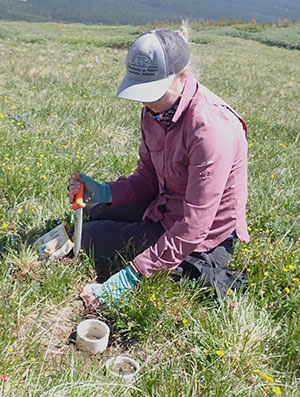
Megan Szokja, a master’s student in the UW Department of Botany, replants globeflowers taken from a sub-alpine area into an alpine area that is part of the Niwot Ridge Long-Term Ecological Research site in Colorado’s Front Range. (Melissa DeSiervo Photo)
In Wyoming, one of the main sources of habitat loss and change of sagebrush habitats is energy development. One part of his research is looking at nesting habits of loggerhead shrikes in disturbed sagebrush habitats. He hopes to produce meaningful insights into how the effects of human-induced habitat loss can be mitigated at the finest scales to reduce negative influences on populations both within and beyond these areas.
“The identification of such elements could contribute greatly to the efficacy of local management efforts,” Schoenborn says.
Schoenborn, of Bakersfield, Calif., is a doctoral student in the UW Department of Zoology and Physiology.
-- Megan Szojka, “Into Thin Air: Interactions in the Alpine.” Szojka is researching the impacts of climate change on species range shifts. Her project focuses on understanding how multiple global change drivers -- such as warming temperatures, increased nitrogen and snowmelt -- affect the movement of species from sub-alpine to alpine ecosystems.
“Climate change is expected to cause species to move to new areas where the environment suits them better. As these species move, they often meet other species that are not in their ideal habitats and create new groups of species that normally wouldn't live together,” Szojka says. “Most research on species moving to new areas only looks at one species at a time.”
Her preliminary findings suggest that interactions between sub-alpine and alpine species may help buffer against the negative impacts of climate change. For instance, the sub-alpine globeflower seems to benefit from the presence of alpine plant communities, showing increased growth and survival.
Szojka, of Vegreville, Alberta, Canada, is a master’s student in the UW Department Botany.
For more information, email Morales at emorale3@uwyo.edu.
Share This Post
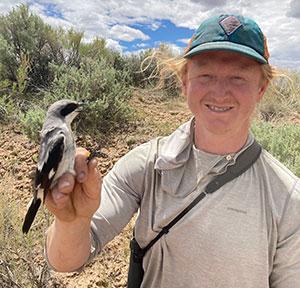
Erik Schoenborn, a doctoral student in the UW Department of Zoology and Physiology, poses with a loggerhead shrike that was captured in Sublette County, where he conducts his field research. Schoenborn is one of two UW graduate students who will present their research to the public during a Science Café event from 6-8 p.m. Friday, April 25, at Central Wyoming College’s Lander center. (Anna Chalfoun Photo)
Social Media
Latest News
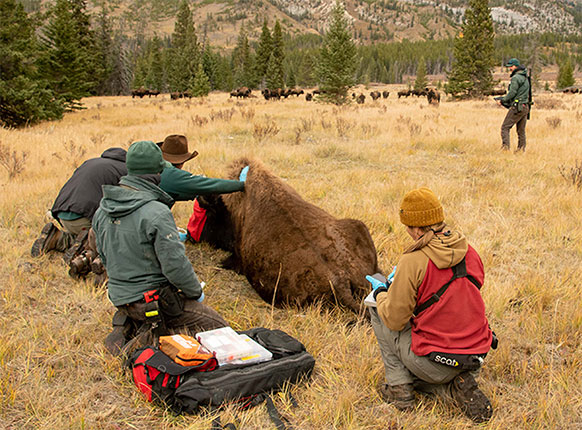
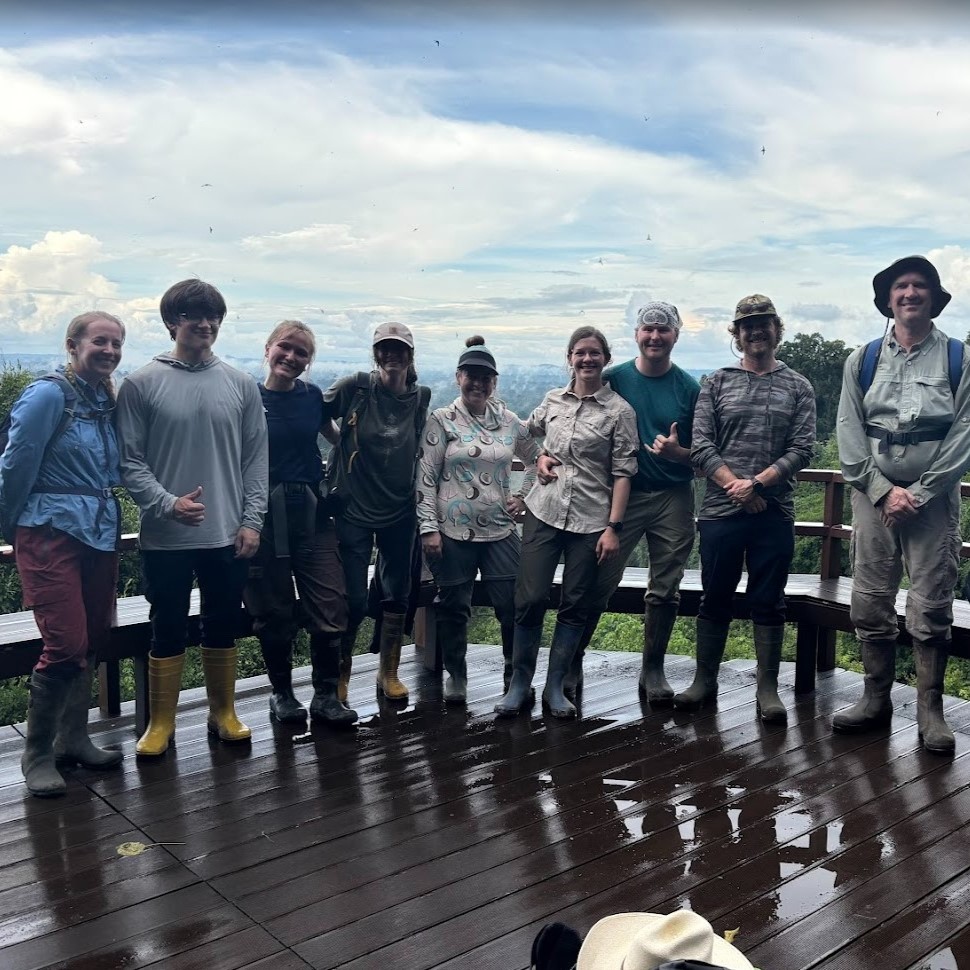
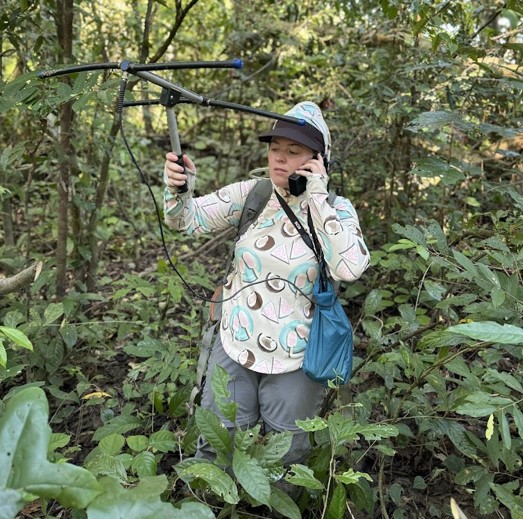
Archives
- All
- February 2026
- January 2026
- December 2025
- October 2025
- August 2025
- July 2025
- June 2025
- May 2025
- April 2025
- March 2025
- February 2025
- January 2025
- November 2024
- October 2024
- September 2024
- August 2024
- July 2024
- June 2024
- May 2024
- April 2024
- March 2024
- February 2024
- January 2024
- December 2023
- November 2023
- August 2023
- July 2023
- April 2023
- September 2022
- August 2022
- July 2022
- June 2022
- May 2022
- April 2022
- March 2022
- February 2022
- January 2022
- December 2021
- November 2021
- October 2021
- September 2021
- August 2021
- May 2021
- April 2021
- March 2021
- October 2020
- August 2020
- July 2020
- January 2020
- March 2019

